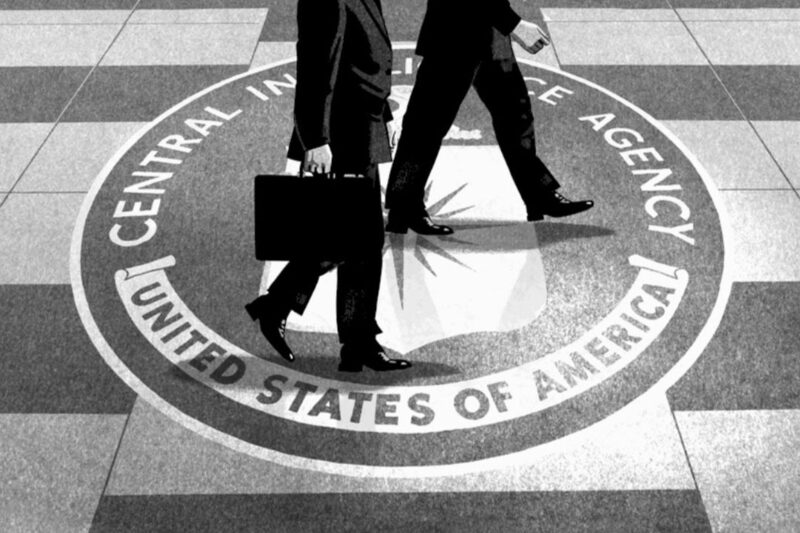
This was first published in .
While President Obama acted quickly to dismantle the CIA’s torture program when he took office, his administration has consistently shut the courthouse doors to the victims. But a recent government filing in a lawsuit against the two psychologists who designed the torture program — and profited enormously from it — suggests that this policy may finally be changing. For the first time, the government will not try preemptively to shut down accountability for those legally responsible for torture. As a result, in another first, on Friday those responsible for devising the CIA’s torture program will have to answer for their actions in a federal courtroom.
Both the Bush and Obama administrations have consistently used claims of secrecy to shield from accountability the people who oversaw the CIA’s torture program. In every case brought by victims, government lawyers demanded that the victims’ claims be dismissed at the outset so as not to expose “state secrets.” As a senator and candidate, Obama criticized the Bush administration’s use of secrecy to block lawsuits. But to the dismay of many, Obama’s Department of Justice carried on the same policies.
The government’s cynical use of secrecy has been devastatingly effective. Even after the details of CIA torture were splashed across the front pages of newspapers worldwide, courts uniformly gave in to administration claims that torture was too secret for the legal system. Despite numerous lawsuits, not a single victim has yet had his claims considered by a US court.
At a court hearing on Friday, that dismal record will begin to change. A federal judge in Spokane, Wash., will consider a lawsuit brought by Suleiman Abdullah Salim, Mohamed Ahmed Ben Soud, and the family of Gul Rahman over the torture the three endured in a secret CIA prison. In accordance with detailed protocols that two CIA-contracted psychologists based on experiments conducted on dogs, the men were confined in dungeons, hung by their arms from the ceiling for days, stuffed into coffin-like boxes, and kept naked, degraded, and starved. Their lawsuit, Salim v. Mitchell, seeks to hold accountable James Mitchell and John “Bruce” Jessen, the psychologists who designed and helped implement the systemic abuse of CIA prisoners, pocketing millions of dollars for their work.
And, for the first time, the government isn’t standing in the way. Instead, the government has suggested that the case against the torture profiteers can go forward, as long as certain information remains off-limits. This retreat from excessive secrecy, even if partial, is long overdue. For years, victims of torture have been prevented from telling their stories in court, even as their mistreatment has been a matter of public knowledge and debate.
While Mitchell and Jessen’s company raked in $81 million in taxpayer money, their victims were left to suffer in silence. Salim and Ben Soud still endure physical pain and deep mental scars from the trauma of their prolonged torture. According to an autopsy and investigation conducted by the CIA, Rahman died under torture. He succumbed to hypothermia in his cell after being beaten, starved, deprived of water, and chained overnight in a contorted position — naked from the waist down — on a cold concrete floor. The government never informed his family about what became of him, or even of his death. His body has never been returned to his family for burial.
Government misuse of secrecy didn’t just compound the trauma the CIA inflicted on torture victims, it also allowed the agency to manipulate lawmakers and the public. Even as government lawyers claimed in court that the torture program was secret, the CIA was itself selectively leaking misleading information as part of a PR effort to sell Americans on an unlawful and universally condemned practice. At the same time that torture was officially too secret to discuss in court, the CIA enlisted the filmmakers behind “Zero Dark Thirty” to tell the agency’s version in cinemas around the country.
The Obama administration’s welcome turnaround on secrecy is the apparent result of the public release of the Senate Intelligence Committee’s exhaustive study on CIA torture. The CIA fought for years to block the public release of the report, warning that violence throughout the world would follow any exposure of the CIA’s wrongdoing. While that dire prediction failed to materialize, the release has had one very significant effect: It is now untenable for the government to claim that CIA torture is a state secret.
On Friday, a federal judge will hear Mitchell and Jessen’s arguments that the case against them should be dismissed. Their attorneys will argue that torture is a “political decision” that can’t be evaluated by courts, and that federal contractors are immune from liability. But one argument they will no longer be able to make is that torture is too secret for courts to handle. On the road toward accountability, that’s a critical — and long overdue — step.

